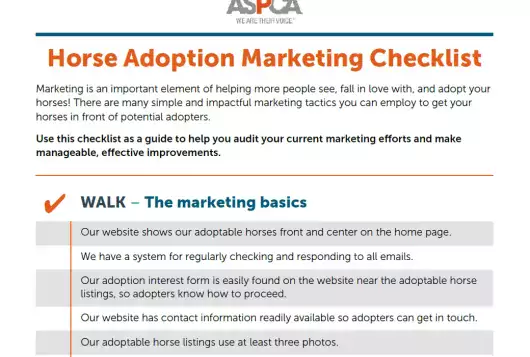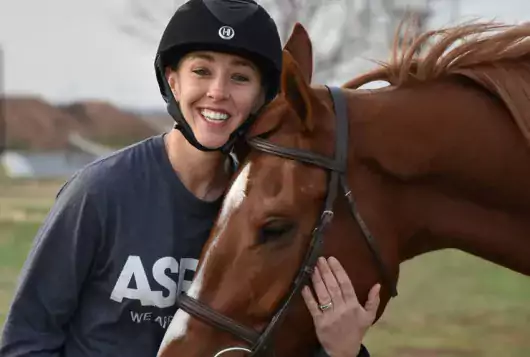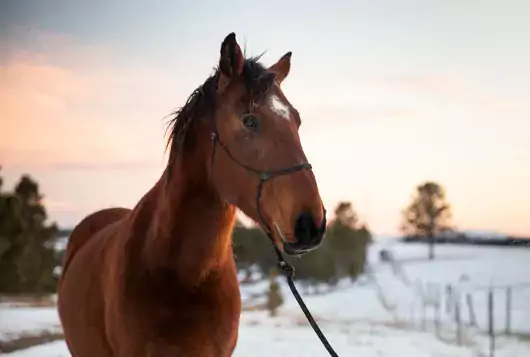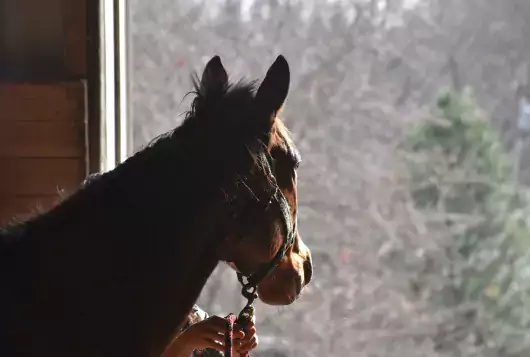Top 5 Reasons to Transfer Equine Ownership
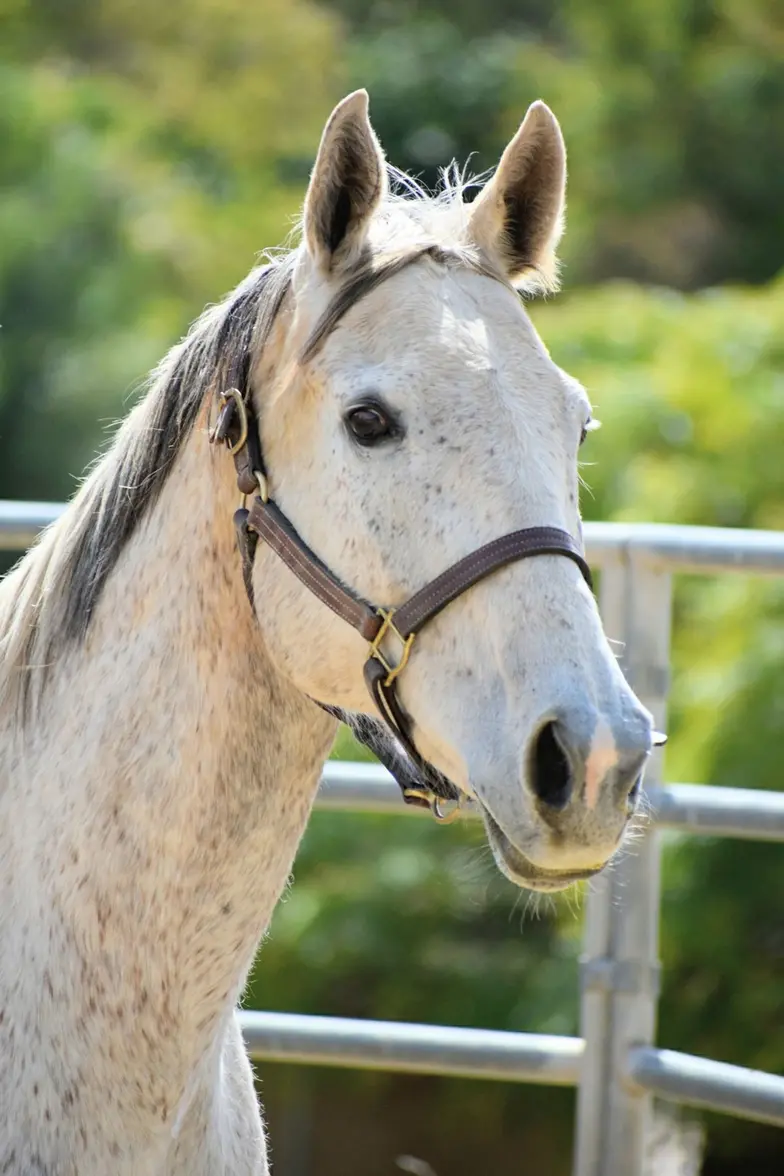
According to the second report of the Equine Welfare Data Collective, 73% of the reporting equine adoption agencies transfer ownership to the adopter. Groups that retain ownership often believe it keeps adopted horses safe, but this good intention may negatively impact adopters, horses, and the organizations themselves.
Read on to learn four reasons transferring ownership is important—and then discover six ways to support and protect your equines post-adoption.
1. Adopted Horses Are Like Every Other Horse
The policies we create around adoptable horses influence the public’s perception of them. If we make them out to be different than other horses, we limit the pool of potential adopters. According to Candy Haasch, founder of Warriors of the Rainbow Horse Sanctuary in Reeds, MO, “For every horse I transfer ownership, I can save another one.”
Part of changing misconceptions about adopted horses is modeling the acquisition of them after the open market. “Horse buyers on the open market receive all the paperwork and ownership rights connected to their horse. It gives owners a sense that this truly is their horse, not the rescue’s,” says Andrea Mena from Drifter's Hearts of Hope in Franktown, CO.
The opportunity to change misconceptions about equines in shelters and rescues can be lost when we make them so unlike other horses that adopters can’t own them.
2. It's What Horse Owners Expect
While some people may be willing to jump through hoops to adopt a horse, others may be turned off by exhaustive adoption requirements. Valerie Jackson, president of Olympic Peninsula Equine Network in Sequim, WA, says, “What we quickly discovered is people became unwilling to adopt from a rescue if there were too many strings attached to the animals.”
Her group softened its contract language while still including provisions to protect the animals. Now adopters take ownership at the time of adoption and must promise to provide proper care and notify the rescue if they rehome the horse.
Haasch says people take pride in horse ownership and compares transferring ownership to renting versus buying a house. “People take better care of something they perceive as being actually owned by them,” she says.
Vera Valdivia-Abdallah, president of Love This Horse Equine Rescue in Acton, CA, goes one step further. “As an adoptive mother, transfer of ownership is important to me,” she explains. “My adopted kids are mine, but what if when I adopted them, they still belonged to the state? If it’s best practice for kids, it should be for horses, too.”
From a practical standpoint, it’s reasonable for adopters to expect they’ll obtain ownership of the horse since most veterinarians and other third-party service providers look for consent from an authorized person to provide services.
In addition, Lauren Martin, Deputy General Counsel for the ASPCA, says “Some contracts that allow the organization to retain ownership of the equine also include requirements governing medical care but do not allow for veterinary discretion, which goes against basic principles of veterinary law and ethics.”
For every horse I transfer ownership, I can save another one.
3. It's What We Should Expect of Adopters
Simultaneously having high expectations of adopters and trusting them will attract adopters who want to do right by horses. Brandy Powell of Cape Fear Equine Rescue in Rocky Point, NC, says, “I believe that transferring ownership allows the new horse owner the ability to take accountability.”
Meris Bickford, CEO of Maine State Society for the Protection of Animals, echoes Powell’s sentiments: “Having adopters as owners helps them invest in the long-term success of the placement.”
“If you trust the person enough to adopt the horse out to them in the first place, you have to trust them enough to transfer ownership,” adds Haasch. She suggests that a rescue’s relationship with adopters doesn’t stop after the transfer of ownership and deepens over time. That’s important because if an adopter ever does need help with their horse, the rescue will be the first one they call.
4. Limits Liability
Jason Preisner, economic developer of Horse Plus Humane in Hohenwald, TN, says his organization has transferred ownership for years because of the potential for liability with retaining ownership.
The ASPCA’s legal team concurs and offers this statement on the topic:
When a person takes physical possession of an equine, that equine is removed from your organization’s care and control. That means that organizations that do not transfer ownership to adopters but instead choose to remain the legal owner of these horses will own many horses over which they exercise no control or authority. If one of those horses were to injure a person, destroy property, or otherwise cause damage, the person suffering the loss will likely look not only to the person in physical possession of the horse but also to the owner of the horse—the rescue organization. By not transferring ownership of the horses that it places, organizations place themselves at risk of incurring liability over which they have no control and expose themselves to risks that they cannot directly manage.
5. Contracts Are Not a Guarantee
Bev Strauss of MidAtlantic Horse Rescue in Warwick, MD, adds, “Retaining ownership doesn’t guarantee a court will recognize your rights. There have been cases where judges have told animal rescues that possession is nine tenths of the law and would not return the animal to the rescue when the rescue tried to invoke its contract.”
So how does an organization protect the equines in their care and transfer ownership? Check out 6 ways to protect horses when transferring ownership that will give you peace of mind when you hand over the reins.
We have lots more on this subject:

